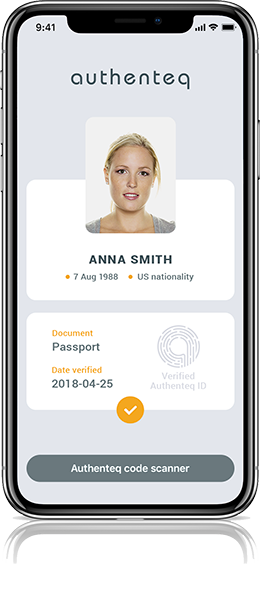Authenteq Builds on Blockchain Tech for Securing Digital Identity

Considering the exponential expansion of the Internet, security and privacy-related issues still prevail. Authenteq proposes to deal with these issues using DLT, by way of improving digital identity management processes: yet another use case for the Blockchain.
This Islandic start-up based in Reykjavik, is famous for their identity verification platform making it possible to certify buyers' and sellers' authenticity on marketplaces. They are now unveiling a new solution enabling users to rely on the Blockchain to create and store a digital ID.
The app called Trollteq applies a full-automated registration process which only requires 90 seconds. They digital ID is created using a formal ID document and a selfie. Once the user’s identity verified, he is assigned a unique connection account.
This solution is meant for different websites and platforms seeking to fight the issue of online “trolling”. The digital ID generated by Trollteq allows them to make sure the connected user is an actual person and hasn’t been banned or notified before due to inappropriate behaviour online.
Comments – The Blockchain for managing digital identities
Since DLTs are neutral, decentralised and secure they are of great help to manage digital identities. Also, a significant amount of time can be saved since a near-real time verification process is in place, and this type solution can apply to several use cases in the banking sector, car locking systems, etc.). In addition, it implies that pseudonyms be used by default and encryption algorithms are, of course, used to meet data security requirements.
Authenteq already raised $1.9 million, and looks into the promises entailed by Blockchain technologies to efficiently deal with digital identity in a decentralised manner. They praise notions including privacy and data protection as no identification information is stored once submitted for verification. However, this start-up isn’t the only player focusing on this field. Several projects now build on the Blockchain to solve identification issues, including Blockstack ID and uPort.
